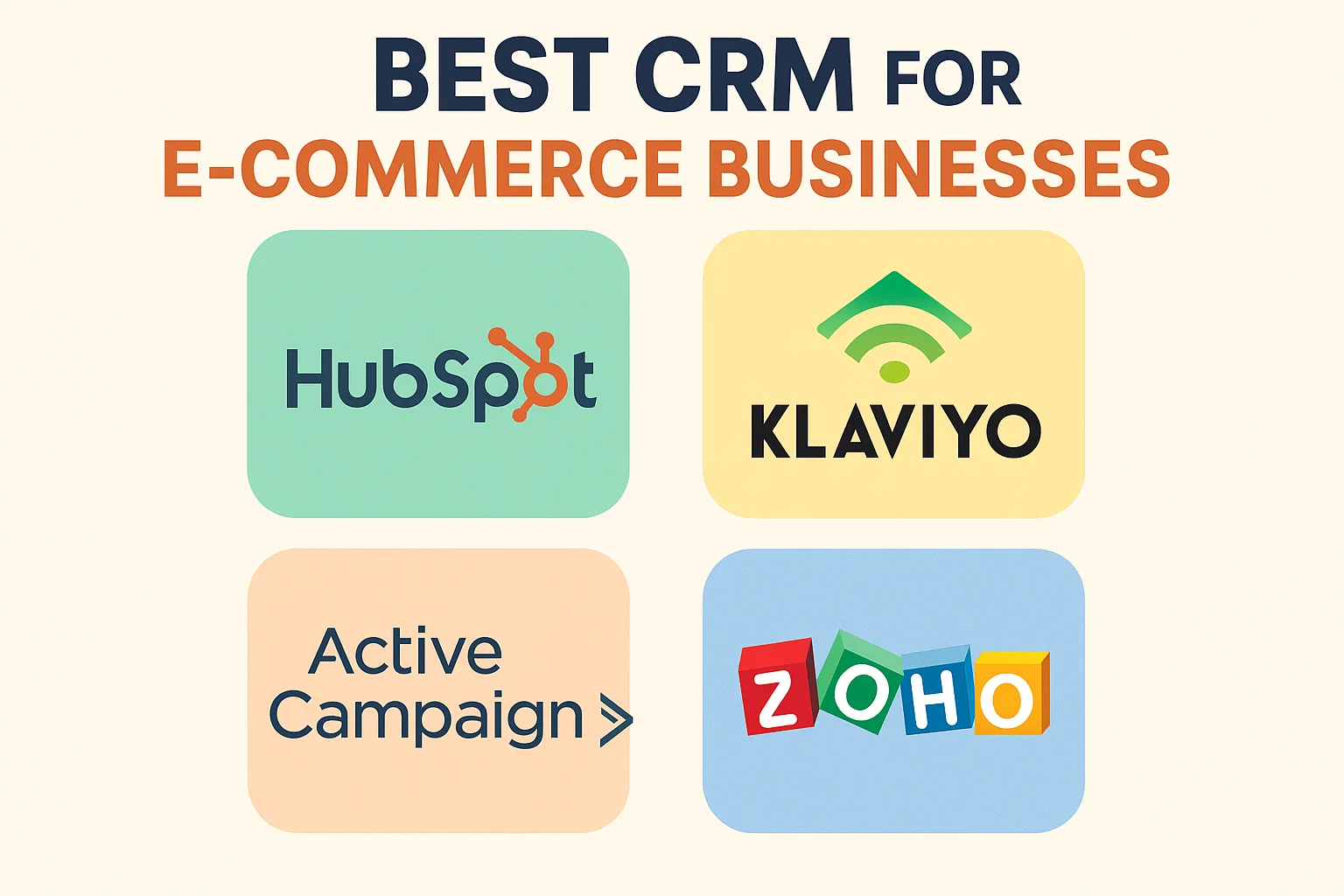Best CRM for E-commerce Businesses

Best CRM for E-commerce Businesses
The global e-commerce industry is booming, with Tier 1 countries like the United States, United Kingdom, Canada, Germany, and Australia leading the charge. To remain competitive, online stores must invest in the best CRM for e-commerce businesses. A powerful ecommerce CRM helps online retailers manage customer relationships, personalize marketing campaigns, and boost ROI through automation and AI-driven insights.
What is an E-commerce CRM?
An ecommerce CRM (Customer Relationship Management system) is designed to centralize customer data, streamline sales workflows, and automate marketing campaigns for online businesses. Unlike traditional CRMs, ecommerce CRMs integrate directly with platforms like Shopify, WooCommerce, Magento, BigCommerce, and custom-built online stores.
Key Benefits of E-commerce CRM
- Customer Segmentation: Identify and target high-value customers with precision.
- Personalized Marketing: Deliver tailored recommendations and product suggestions.
- Cart Abandonment Recovery: Automate follow-up campaigns to recover lost sales.
- Omnichannel Integration: Connect email, SMS, WhatsApp, and social media campaigns.
- Data Analytics: Gain insights into customer lifetime value (CLV) and purchasing patterns.
Top Features to Look for in an E-commerce CRM
| Feature | Why It Matters | Impact on E-commerce |
|---|---|---|
| Shopify/WooCommerce Integration | Direct sync with store data | Real-time order & customer tracking |
| Cart Abandonment Automation | Recover lost revenue | Boosts conversion rates |
| AI-Powered Product Recommendations | Personalized upselling | Increases average order value |
| Multichannel Marketing | Unified customer communication | Higher customer engagement |
| Customer Lifetime Value Tracking | Identifies most profitable customers | Improves ROI on marketing spend |
Best CRMs for E-commerce Businesses in 2025
Here are the leading CRMs that integrate seamlessly with e-commerce platforms:
- Klaviyo CRM: Popular among Shopify stores, Klaviyo offers advanced segmentation and automated email flows for higher conversions.
- HubSpot CRM for E-commerce: Provides free tools and powerful integrations with Shopify, WooCommerce, and Magento.
- Zoho CRM for E-commerce: Affordable, scalable, and AI-driven—ideal for small to mid-sized online businesses.
- Salesforce Commerce Cloud: Enterprise-grade CRM with robust e-commerce features and AI-powered analytics.
- ActiveCampaign: Known for marketing automation and customer experience optimization in online retail.
AI & Automation in E-commerce CRM
In 2025, AI-powered ecommerce CRMs are transforming how online stores manage customers. Advanced automation tools provide:
- Predictive Analytics: Identifies customers most likely to make repeat purchases.
- Chatbots & Virtual Assistants: Offer 24/7 support and guide customers through purchasing decisions.
- Dynamic Product Recommendations: Personalized upselling and cross-selling to increase revenue.
- Customer Journey Mapping: Tracks behavior across multiple touchpoints for better engagement.
Pricing of E-commerce CRMs
The cost of CRM software for e-commerce varies depending on features and business size:
| Business Type | Monthly Cost | Recommended CRMs |
|---|---|---|
| Small Online Store | $50 - $150 | Zoho CRM, Klaviyo, ActiveCampaign |
| Mid-Sized E-commerce | $150 - $500 | HubSpot CRM, Zoho CRM Plus |
| Enterprise E-commerce | $500+ | Salesforce Commerce Cloud |
Future of E-commerce CRM (2025 & Beyond)
As online retail evolves, CRMs will become smarter and more integrated. Key trends to watch include:
- Voice Commerce Integration: CRMs that capture and analyze voice shopping data from Alexa, Google Assistant, and Siri.
- AR/VR Shopping Support: Enhanced customer data tracking for immersive shopping experiences.
- Blockchain-Powered Security: Protects sensitive customer payment and identity data.
- Hyper-Personalization: AI that delivers unique, one-to-one shopping experiences.
Conclusion
For online retailers aiming to maximize ROI, improve customer retention, and drive higher sales, adopting the best CRM for e-commerce businesses in 2025 is non-negotiable. Whether you're running a Shopify store, WooCommerce shop, or a global Magento storefront, solutions like Salesforce, HubSpot, Zoho, and Klaviyo provide powerful tools for growth. By leveraging automation, predictive analytics, and multichannel engagement, e-commerce brands can stay competitive in high CPC markets across Tier 1 countries.
Comments (3)